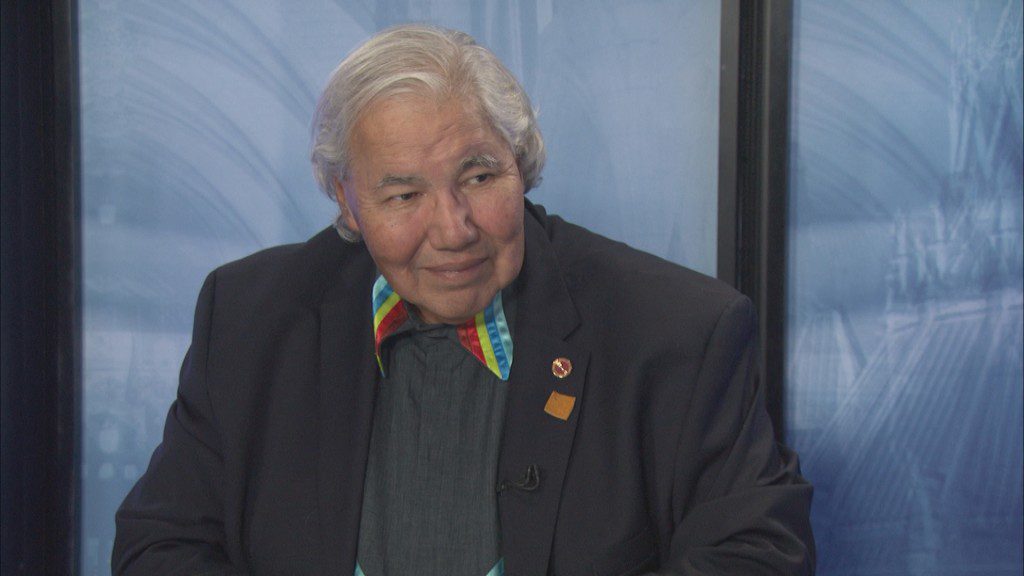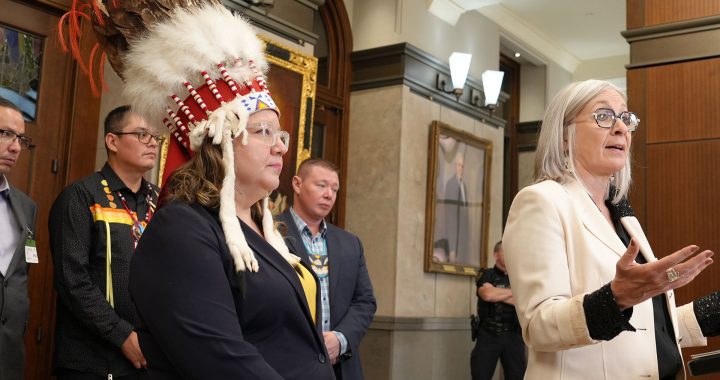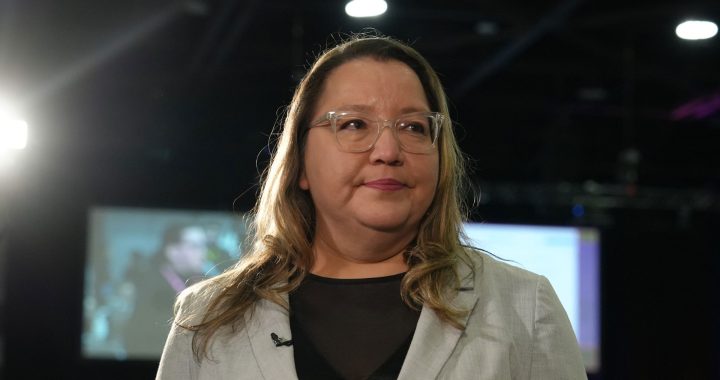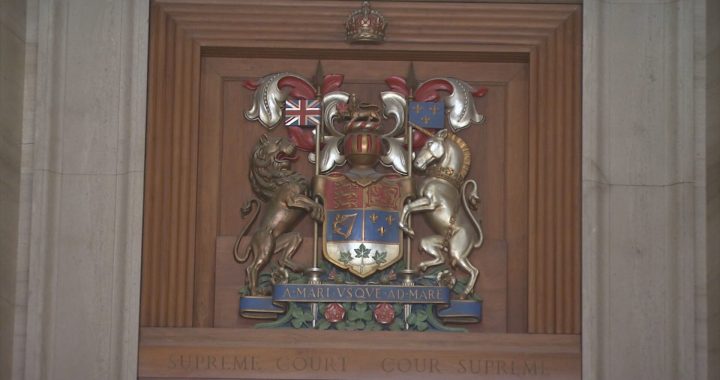Jorge Barrera
APTN National News
Ottawa breached the multi-billion dollar Indian residential school settlement agreement by allowing its lawyers to use legalistic tactics to defeat and limit compensation claims from survivors during private hearings, says Sen. Murray Sinclair, who was chair of the Truth and Reconciliation Commission.
Sinclair said he doubts many residential school survivors would have agreed to the settlement agreement, which was finalized under the Liberal government of Paul Martin, if they knew federal government lawyers would resort to splitting jurisdictional hairs to disqualify compensation claims under the Independent Assessment Process (IAP) which was created by the settlement agreement.
“The way that government lawyers have taken advantage of the stature of the government to, in effect, seek and obtain rulings that allows them to avoid further responsibility or the responsibility which they said they would undertake during the negotiations of the settlement agreement causes me concern,” said Sinclair, in an interview with APTN’s political show Nation to Nation which aired Thursday. “I think in fact it is a breach of the settlement agreement….I am convinced survivors…would not have agreed to or approved the settlement agreement if they’ve known the government would come back later and say, now we intend to exclude these schools going forward.”
Sinclair was referring to the so-called administrative split, a tactic used by federal lawyers to defeat claims by arguing Ottawa’s responsibility for incidents did not extend to areas of residential school compounds after they were transferred administratively to other agencies.
In other similar legal ploys, Ottawa has defeated claims of survivors because they occurred just outside school property or on school buses. In addition, evidence has surfaced proving Ottawa’s lawyers sat on documents that would have supported claims that were defeated before the IAP.
“That is not only unfair, but in my view contrary to the agreement,” said Sinclair. “It’s a breach of the agreement.”
Read APTN’s coverage of IAP controversies
Ottawa has said it is now mulling several options on launching a review of how it executed of its duties under the settlement agreement. The IAP process, which was to set compensation payouts to survivors, is one of the central components of the settlement agreement.
The Truth and Reconciliation Commission (TRC), which Sinclair chaired, was also a product of the settlement agreement.
The TRC found itself at loggerheads with the IAP Secretariat over the fate of documents produced during the IAP hearings.
The IAP Secretariat wanted to destroy the documents, but the TRC wanted to preserve them and the sides went to court over the issue. In 2014, Ontario Superior Court Justice Paul Perell ruled the documents should be destroyed after 15 years and that survivors would be given a chance to allow for the files’ preservation within that time frame.
The ruling was upheld by the Ontario Court of Appeal and is now before the Supreme Court. The newly-created National Centre for Truth and Reconciliation, which holds all of the TRC’s documents, is arguing for the documents’ retention. Ottawa has also fought to retain the documents.

Sinclair said he still believes the documents should be preserved and is disappointed with the IAP Secretariat’s position on the issue.
“I was not impressed and still am not impressed by the way the IAP has taken the position to destroy documents coming out of the IAP process. Those documents, I think, are absolutely crucial to the establishment of a national memory around residential schools,” said Sinclair. “They contain the stories of survivors who experienced trauma….These documents should not be destroyed and I feel very strongly about that.”
Sinclair criticized the way the IAP has kept a shroud of secrecy over the proceedings which extends not only to the hearings but also the rulings by adjudicators, which have recently come under criticism for deferring too much to federal lawyers and committing serious errors in decisions.
“I was not impressed with some of the things that I heard coming out of the IAP process….The fact that so much that has gone on by the adjudicators in those hearings, in their rulings, their direction and their treatment of witnesses and survivors is unknown and unseen by the public concerns me greatly,” said Sinclair. “(Survivors) are the ones then who are left to carry the burden of painful histories and stories….Survivors are the ones we ask the most of and have asked the most of because they are the ones who carry the history in their daily lives.”
Sinclair also called on the Justin Trudeau government to begin matching its words with actions on its pledge to implement all of the TRC’s 94 calls to action.
“There is certainly a need for the federal government to recognize they are falling behind on the pace of reconciliation in terms of action,” said Sinclair. “In terms of words, I think they led the way initially. It was because the federal government, and the prime minister in particular, said the things that he did last year during and following the last federal election that people took it seriously, started thinking about it seriously.”
While the Senator, who was appointed by Trudeau, acknowledges the creation of the inquiry into the national tragedy of the disproportionate number of murdered and missing Indigenous women and girls has taken up a lot of Ottawa’s energy, he believes it’s time for the federal government to lay out its vision on reconciliation.
“What needs to be done, what needs to occur, is there needs to be a plan of action, a strategy of how we move to a nation-to-nation relationship,” said Sinclair. “How do we move to a relationship of reconciliation and mutual respect?”












And those settlements are not done yet what about the grandchildren Anishinabe Native Indian who were abused also in the inner city day schools for Who and What we are and Where we come. they were still abusing us in the inner city day school, early sixties to late seventies, hitting us with wooden yard sticks, with there bare knuckles,squeezing our necks,strong arming us strapping us with a big black belt in those inner city day schools in Winnipeg,Manitobah Canada who’s going to compensate us Anishinabe Native Indians
Travesty continues!!! Unacceptable!!!
I am a residential school survivor ,was not happy with settlement shoved down my throat by my lawyer & adjudicater .
Thank Sinclair for honesty ,integrity,and respect you share in sharing crucial information.We all know too well the Government will what they want,choose their own people to steal from something they the Government implemented,It’s not needing our own lawyers N well know politicians in to see it’s done 100% guaranteed right.We need people who understand,N are open to what’s going to happen.And to not be bought off by the Government who placed them Thier for the job!!!Again we are being treated like the day Custer died!!!!!N from that day …I believe they will never change what’s in thier hearts about us!!!!We will be always “indians”too that society.I have cried many tears N buried so many of my own since that Residential School Inquiry began!!!Everyday I pray good will come out of all this,but I have not seen nothing but sadness N deaths.Now to hear compensation has filled the very pockets who worked for Government who hired them?!This is very sad N disrespect too us all !!!!! But Mr. Sinclair I believe you have a voice N people will listen, I am!!!!!
As a Iroquois – Cree Indian Residential School Survivor I am not surprised at those same tactics governmental politicians use and have used in the past to Divide and Conquer our People. This is an ongoing tactic that John A MacDonald, and all his Indian affairs Ministers used. Our people have always been treated and viewed as sub human, inferior, and lesser than. The true History and Relationships we had with the New Comers needs to be told over and over again till all Canadians understand how we as the Original Peoples have been treated in the past and present. Our stories of what happened to us as well as what happened to our ancestors must be told from a First Nations perspective. Not one told by someone who has bees in their bonnets. We talk about Truth and Reconciliation yet there is no sign or indication of this happening at least on the position of governmental officials and mainstream society. It seems that the same tactics used in the past to destroy, conquer and divided are being used today. When will mainstream society take responsibility and the burden of their past and present actions and inaction’s towards our people?
There is no reconciliation, stop accepting their apologies
Even being a Mi’kmaq and a lawyer did not get me a legal job with the private law firms that worked and were involved with residential school survivors. So imho that settlement is unfair. The CEP as well as the individual claims process. but that didn’t stop a private law firm from billing the Canadian Government 45 MILLION dollars. Where is the justice for the survivors of cultural genocide, sexual abuse, physical abuse, emotional abuse, and spiritual abuse? my mom was a residential school survivor. She passed away at age 87 but got a CEP settlement. So sad, it breaks my heart.
It seems clearer and clearer to me each day that if Indigenous Peoples are to thrive in the twenty-first century they must become nations of lawyers and healers.